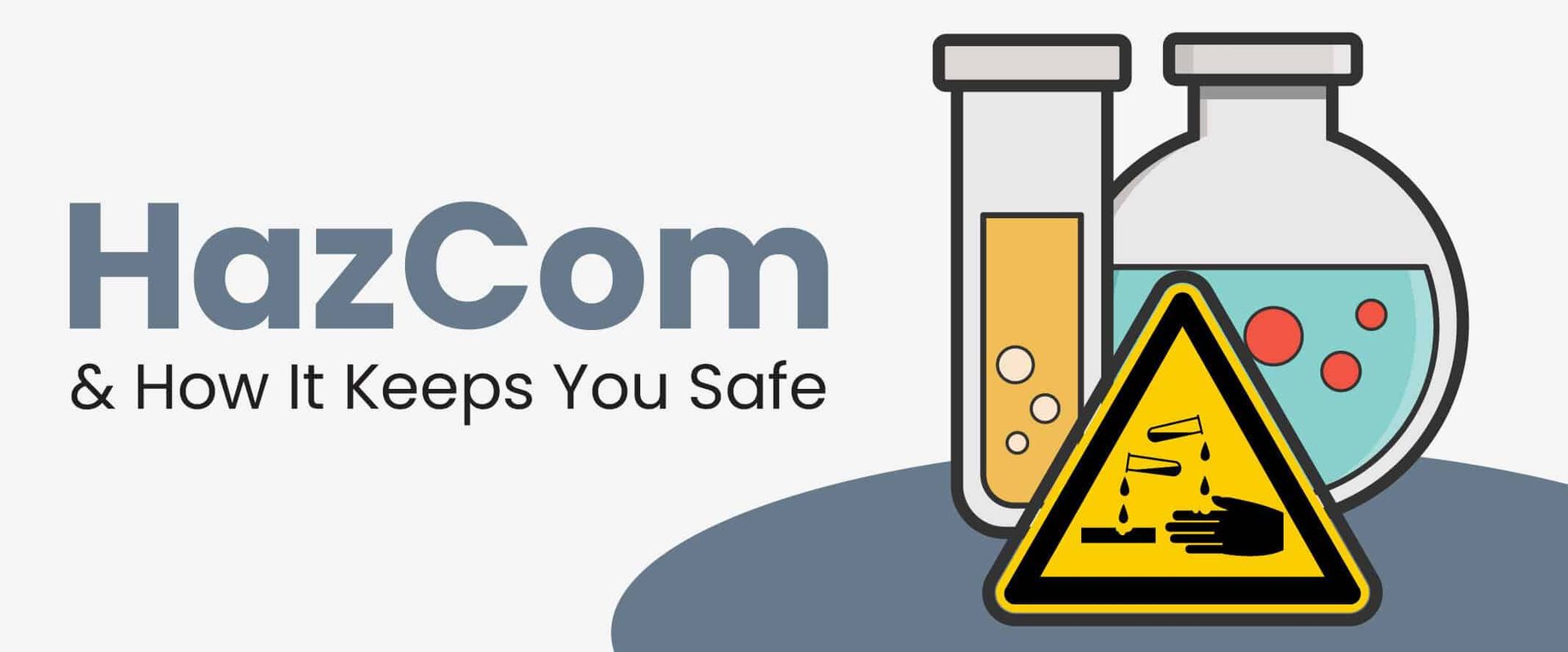How HazCom Training Will Keep Your Business and Vendors Safe

How HazCom Training Will Keep Your Business and Vendors Safe
HazCom, also known as the Hazard Communication Standard (HCS, or HazCom), is a type of training protocol that will keep your business and vendors safe. It ensures and promotes chemical safety in your workplace by making it mandatory to develop and disseminate important information about the identities and hazards related to chemicals.
What Is HazCom?
HazCom (standard number: 29 CFR 1910.1200(g)) is a protocol developed and regulated by OSHA. It ensures that workers, customers, and third parties are adequately protected from the risks of hazardous chemicals by requiring all employers with these substance forms in their workplaces to do the following:
- Label and use understandable safety data sheets for workers exposed to such chemicals
- Train, or retrain, workers to handle chemicals appropriately and best practices for protecting themselves from harm
HazCom also requires chemical importers and manufacturers to do the following:
- Evaluate the hazards of the chemicals
- Prepare safety data and labels informing all potential customers about such hazards
Who Needs to Adopt HazCom?
If your company routinely deals with at least one hazardous chemical, then you need to adopt a HazCom plan. Company types that generally need HazCom training include:
- Construction firms
- Chemical manufacturers and importers
- General industry
- Shipyards
- Mining companies
You should still adopt HazCom standards even if your workers are not encountering hazardous chemicals on a routine basis or only come in contact to such chemicals in isolated instances. Although OSHA does not require companies to train workers who encounter hazardous chemicals in isolated instances, it is a good idea to provide HazCom training as a way to ensure maximum safety.
How Does the Globally Harmonized System of Classification and Labelling of Chemicals (GHS) Relate to HazCom?
On September 30, 2009, OSHA published a rule aligning HazCom with the Globally Harmonized System of Classification and Labelling of Chemicals (GHS). This meant that HazCom now had to follow an internationally established set of guidelines for workplace safety.
As a result of aligning with GHS, HazCom has gone through three major areas of change:
- Hazard classification: The hazard definitions have changed to give specific criteria for classifying physical/health hazards and mixtures. These criteria help ensure that classifications of hazardous materials are consistent across companies and that safety data sheets and labels are more accurate.
- Labels: Importers and manufacturers of chemicals are now required to use labels that include hazard statements, pictograms, and harmonized signal words for each hazard category and class. They also need to include precautionary statements.
- Safety Data Sheets: GHS has added a safety data sheet format composed of 16 specific and detailed sections for companies to follow.
What Is Required of the Hazard Communication Standard?
HazCom requires chemical manufacturers, importers, and all other employers associated with hazardous materials to set up an information and training program educating employees on how to protect themselves from the risks of handling hazardous chemicals.
This protocol must include the following information:
- Safety data sheets containing the specific 16-section format.
- Container labels in which each label must have a pictogram, hazard statement for each hazard category and class, a harmonized signal word, and precautionary statements.
- An employee training program ensuring that every employee understands the labels and safety data sheets they are working with.
- Which hazardous chemicals are present in the workplace.
- Hazard classification with specific criteria to classify physical/health hazards and mixtures.
- How employers will inform employees about the hazards of nonroutine activities.
- Hazards associated with chemicals in unlabeled pipes.
Why HazCom Training Is Important and How You Should Properly Train Your Team
Why Is HazCom Training Important?
The importance of HazCom training goes unsaid. As many businesses interact with highly toxic chemicals and substances, it is the responsibility of employers to best protect their workforce from preventable harm. Even if an accident does occur, the HazCom training will give your employees a step-by-step process on how to seek medical care and/or address the situation.
How You Should Train Your Team To Use HazCom Properly
To maximize the use of HazCom training, you should directly train your staff to recognize and use labels, pictograms, and other essential elements related to HazCom standards. Any time a new chemical is introduced to your workplace, you need to familiarize your employees with the new substance and update the HazCom plan as needed.
One of the most common issues you may have as an employer associated with hazardous chemicals is the failure of employees to follow protocol or “cut corners” with daily work habits. The protocol should be written down and displayed openly in your place of business.
You should also make sure the written HazCom program reflects what you are specifically going to do when there are changes. For instance, if you are planning to switch to virtual training instead of in-person training, you need to update your protocol. New training should also take place anytime a new chemical is introduced.
Although OSHA HazCom standards are comprehensive, they are not permanent and occasionally receive updates. By taking the initiative to reevaluate your own Hazard Communication Standard protocol regularly, you will boost the effectiveness of your company’s plan and better ensure the safety of your workers.
Wrapping It Up
You may have questions or concerns about implementing HazCom training at your workplace. Consider contacting a solutions-based company that matches employers with Environmental Health & Safety (EHS) professionals, making the hiring process both simple and straightforward.
When you connect with EHS professionals and other regulatory experts from your industry, you can properly train, or retrain, your employees in HazCom protocol. You will lower risks, all while boosting productivity — the ultimate win-win in your line of work. If you are ready to find an EHS professional, get started today
with YellowBird.


